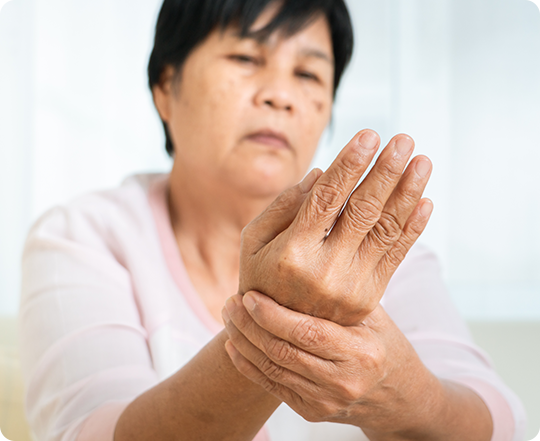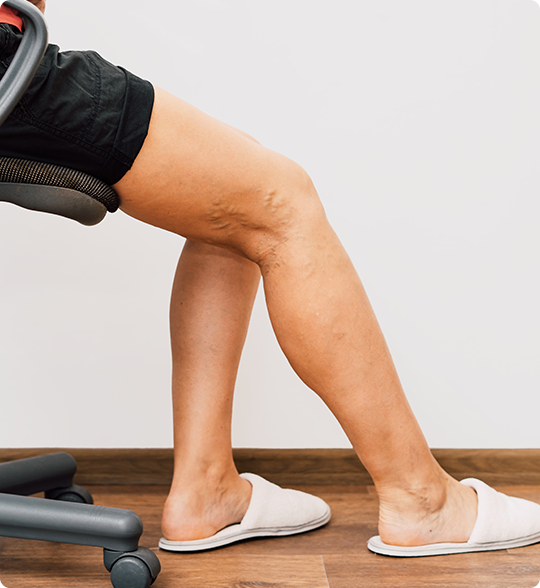Er Survival Guide
Bowes in Home Care
Readmissions more than double the cost of care. Episodes of care involving one readmission cost approximately $33,000.
The Journal of Managed Care (2012)
The goal of the Bowes In Home Care ER Survival Guide is to provide nurses and discharge planners with information on our programs geared towards decreasing hospitalizations through providing a higher level of care within the home. Our programs were developed to focus on the ailments that are most often catalysts for recidivism, in turn reducing readmissions.
1 in every 3 older American adults about 12 million seniors will fall this year
Centers for Disease Control and Prevention
(2012)
Fall Prevention Program
In 2010, 2.3 million nonfatal fall injuries among older adults were treated in emergency departments and more than 662,000 of these patients were hospitalized.
– Centers for Disease Control and Prevention (2012)
By 2020 the total annual cost of fall-related injuries is expected to reach 32.4 billion annually.
– Centers for Medicare and Medicaid Services (2007)
1 in every 3 older American adults — about 12 million seniors — will fall this year
– Centers for Disease Control and Prevention (2012)
With volumes of falls treated in the ER, it’s critical that when patients return home there are resources in place for ongoing care following discharge, in turn reducing recidivism. The Bowes In Home Care Fall Prevention Program is supported by proven outcomes through retraining neuro-muscular patterns as well as correcting muscle impairments that lead to frequent falls.
Cardiac Care Program
Average cost for a cardiac readmission ranges from $1,522 to $18,927.
– Division of General Medicine (2010)
There are 5 million cases of heart failure with an additional 500,000 new cases diagnosed annually.
– American Heart Association (2001)
By 2014, hospitals could lose up to 3% in pay if they have high readmission rates.
– Centers for Medicare and Medicaid Services
The prevalence of heart failure continues to increase and has resulted in an annual expenditure of 10 billion dollars for diagnosis and treatment.
– The American Heart Association (2012)
The emergency department continues to provide the highest level of cardiac care to patients, a level of care that Bowes In-Home Care will continue to provide once the patient returns three phases: acute, sub-acute, and beyond. Skilled Nursing focuses on medication reconciliation to reduce polypharmaceutical cardiac exacerbation and Physical Therapy focuses on endurance, strength, flexibility, posture and alignment through tai chi and yoga.
Those age 65 and older with dementia
are hospitalized three times more than
their peers.
Dementia Experts (2012)

Cognitive Program
Those age 65 and older with dementia are hospitalized three times more than their peers – and 25% will be readmitted within 30 days.
– Dementia Experts (2012)
The continuum of care provided through the Bowes In Home Care Cognitive Program provides support to patients and their loved ones while at home when dealing with changes in mood and behaviors connected with the disease.
The clinicians working under the program have been successful in reducing psychotropic medications through behavioral management.

Cognitive Program
100 million Americans suffer from Chronic Pain.
– Institute of Medicine of The National Academies (2012)
Hospitalizations account for nearly one-third of the 2 trillion dollars annual cost of health care in the United States. These hospitalizations are costly, potentially harmful, and often preventable.
– Patient Safety Authority (2010)
The Bowes In-Home Care Pain Management Program begins with an in-depth assessment of increased behaviors, weight loss, changes in eating habits, sleep patterns, and activity participation or isolation. The utilization of yoga, tai chi, relaxation and imagery, massage, gentle touch, as well as heat therapy provides relief, and together with appropriate medication reconciliation, eases pain.
More than 3 million Americans suffer
from pain and swelling due to
Lymphedema
Centers for Disease Control and Prevention (2008)
Lymphedema Program
More than 3 million Americans suffer from pain and swelling due to Lymphedema.
– Centers for Disease Control and Prevention (2008)
The most common form of infection that a Lymphedema patient may develop is cellulitis which can become a major complication requiring hospitalizations.
– American Medical Association (2012)
76% of hospital consultant episodes for cellulitis required hospital admissions.
– Hospital Quality and Clinical Excellence (2013)
Certified Lymphedema therapists developed this program with the implementation of hands-on manual therapy and modalities for pain, utilizing physical therapy frequencies as often as needed. Customized compression treatments reduce swelling and prevent scarring and other complications.
Parkinson’s Program
Approximately 60,000 Americans are diagnosed with Parkinson’s disease each year, and this number does not reflect the thousands of cases that go undetected.
– Parkinson’s Disease Foundation (2013)
78% of hospital consultations for Parkinson’s and other extrapyramidal and movement disorders required hospital admission.
– Hospital Quality and Clinical Excellence (2013)
48% of hospital episodes for Parkinsonism and other extrapyramidal and movement disorders were for women. 52% were with men. 13 days was the median stay.
– Hospital Quality and Clinical Excellence (2013)
The Bowes In Home Care Parkinson’s Program provides cognitive processing therapies to retrain the brain. Physical Therapy techniques combine tai chi and yoga to combat bradykinesia and rigidity as well as re-educating gait and transfer practices. Bowes In Home Care has a Certified Hand Specialist providing specialized therapies and modifications for custom hand braces.
25 percent of all hospital admissions
for patients over 65 years of age involve
medication toxicity
National Council on Patient Information (2012)
Medication Management
Program
Medication Management is a simple but important component of patient care. Our Medication
Management Program includes medication cassette setup, review of doctor’s orders, ordering medications
and/or renewing prescriptions, monitoring medications, as well as making necessary intermittent
medication changes as needed.
This service is often covered during a Medicare Certification period for those patients who qualify or can be
provided on a private pay basis at a monthly rate of $200.00.






